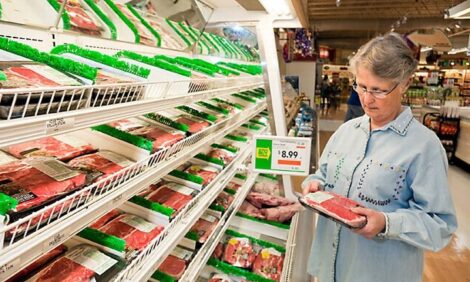



Pig Farmers Top in Reducing GHG Emissions
UK - A new survey released by Farming Futures – an industry-led project which helps farmers respond to climate change – reveals that one in four farmers has noticed increased interest from customers in their environmental performance over the past year.The release of the survey findings coincides with today’s launch of Farming Futures’ new web site and blog.
53 per cent of those surveyed recognise that addressing climate change offers potential business opportunities – a significant rise on last year – and the number of farmers producing their own energy has doubled. Almost half are taking action to reduce greenhouse gas emissions from their land (48 per cent), and one in three (31 per cent) farmers are doing something to adapt to the impacts of climate change.
Pig farmers came out top in terms of reducing GHGs from their farm, with 63 per cent saying they were taking action. They also came out second (after veg and potatoes) in terms of taking action to adapt to climate change with 45 per cent saying they were doing something. They came out slightly higher than average in terms of noticing increased interest about the environmental performance from customers (28 per cent) and 50 per cent were confident that achieving an 11 per cent cut in GHG emissions from their farm was possible.
Encouragingly, almost half (47 per cent) of farmers are confident that the industry’s target to reduce greenhouse gas (GHG) emissions by 11 per cent by 2020 can be met1. And a massive 47 per cent are improving energy efficiency on their farm.
Other key findings from the survey are:
- 42 per cent think that investments in climate change action will pay off within 10 years.
- 74 per cent think that producers should work more closely with processors and retailers to combat climate change.
- 82 per cent think that farmers should work together and share ideas more to combat climate change, which could include setting up buying/sharing cooperatives, or ‘knowledge’ cooperatives.
- 88 per cent said that rising input prices were making them more efficient with their resources, an increase on last year.
- Farmers are increasingly interested in measuring their farm’s carbon footprint – 36 per cent compared to 31 per cent last year.
The survey comes on the back of a big year for farming, during which Government legislation, the Feed-in Tariffs, media debates on the environmental impact of food production, and rising energy and input costs have put farming in the spotlight.
Madeleine Lewis, Farming Futures Strategic Advisor says: “The last year has brought a lot of developments in the agricultural sector and climate change is now firmly on the agenda. Government targets around greenhouse gas (GHG) emissions, renewable energy and food security are challenging us to rethink the way we farm. These issues aren’t going to go away – by engaging with them and making changes, you can take advantage of the opportunities and manage the risks.”
“Like every sector of the economy, farming has its role to play in the shift to a low carbon economy, but the good news is that a lot of the things farmers can do are good for their bottom line too. And it’s not all about big investments – as we can see from the survey results, almost half of farmers are improving the energy efficiency on their farm – these smaller actions are just as important.”
The new Farming Futures web site and blog has been designed as a ‘one-stop-shop’ to help farmers discover and share what actions they can take on their farm that will reduce their environmental impact.
The new web site has five video case studies of farmers who are exploring new technologies and ways of working to reduce their environmental impact. There’s also a film outlining the business case for engaging with the issues, featuring Sir Don Curry and the Rt Hon Nick Herbert MP. Farmers are encouraged to contribute to the blog to share ideas and information with other farmers. The web site will also list Farming Future’s series of free on-farm events across England which begin in the summer.








